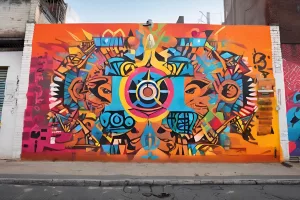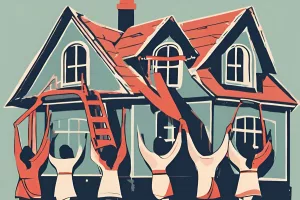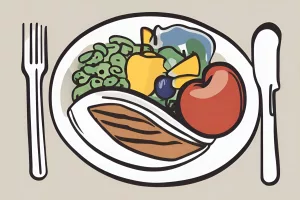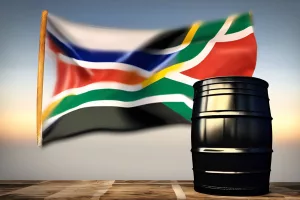South Africa’s electricity problem has become a national crisis, with almost 10 million qualifying for free basic electricity but only 2 million receiving it due to inefficient local governance. The government’s countermeasure provides free basic service, but the qualification process is intricate, and poor implementation at the municipal level obstructs its efficacy. The government needs to develop a more trustworthy method to guarantee households benefit from free electricity, with revising the country’s electricity pricing policy and ensuring efficient governance at the municipal level being crucial initial steps towards a resolution.
People in South Africa’s Eastern and Western Cape were awed by the recent sighting of a meteorite that briefly lit up the morning sky before plunging into the ocean. Videos and photos of the spectacular event were shared on social media, sparking discussions and debates. The meteorite’s impact caused a loud blast, leading to concerns about a potential tsunami. The event brought communities together and sparked an interest in astronomy and the mysteries of the universe.
Embark on a captivating cultural journey through South Africa’s five cities, each with its own unique blend of history, arts, music, and food. From the cosmopolitan charm of Cape Town to the vibrant metropolis of Johannesburg, the unique cultural blend in Durban, the historic legacy of Pretoria, and the blossoming arts scene in Gqeberha, South Africa is a haven for those who appreciate culture. Explore the rich repository of varying cultures and intriguing histories that create a captivating cultural patchwork waiting to be explored.
The Hawks, South Africa’s elite crimefighting force, are dedicated to investigating and battling highpriority crimes such as corruption, fraud, and money laundering. Their colossal task involves managing thousands of cases with numerous charges worth trillions of rands. Despite the challenges they face, the Hawks have made significant strides in crime fighting, securing convictions and court orders associated with assets linked to criminal activities. Their unyielding pursuit of justice offers hope for a safer and more secure South Africa.
South Africa is facing an alarming increase in extortion incidents, affecting not only business owners but also retirees. The crisis is spreading throughout the country, causing daily fear and anxiety. In Mthatha, Eastern Cape, the situation has reached emergency levels, with schools and businesses shutting down due to extortion threats. The Eastern Cape Chamber of Business has demanded new police deployments, and plans to launch a tollfree line for reporting incidents are underway. The situation highlights the urgent need for collective action to restore peace and security and safeguard the human spirit.
The alleged bribery attempt and political discord in South Africa’s Swellendam Municipality could significantly upset the power dynamics as the ruling Democratic Alliance (DA) faces accusations of attempting to bribe an African National Congress councillor to resign and trigger a byelection that would be in their favour. The DA and Freedom Front Plus deny the allegations, while the ANC is preparing a vote of no confidence against the existing authority to establish a new coalition with the FF Plus.
South Africa’s property market is a robust platform for homeowners, buyers, sellers, and investors. While the Covid19 pandemic caused significant obstacles for the market, there is still hope for the future. Interest rate reductions later this year could provide a muchneeded boost, and the upcoming twopot retirement system launch could potentially increase household disposable income by a large amount, providing a lift to the property market. Despite the challenges, the market remains resilient, embodying the unyielding optimism and spirit of South Africa itself.
Laingsburg is a historical town in South Africa that offers cultural and geological offerings. Although it was devastated by a flood in 1981, the town’s residents have shown unyielding spirit and persistence. Visitors can explore the town’s journey through this challenging period, enjoy outdoor activities, and admire the harmonious blend of its historical charm and modern charms, making it a desirable place to live, invest, and visit.
Women in South Africa have overtaken men and mixedgender couples in property ownership, with women owning 38% of all properties. This trend began in 2016 and has continued to increase, highlighting women’s financial independence and the country’s progress towards gender equality. Women are not just home buyers but also investors, using real estate as a tool for wealthbuilding and financial freedom. Despite this, women still see their properties as homes first and investments second.
Join filmmaker and emotional ecology advocate Craig Foster on a journey to reconnect with nature in Cape Town. From diving at Windmill Beach to tracking wildlife at Cape Point Nature Reserve, experience the beauty of South Africa while keeping conservation in mind. Foster implores visitors to respect and protect the environment through activities like beach cleanups and volunteering with local conservation organizations. By appreciating and interacting with nature, we can better understand the necessity of safeguarding it for future generations.
The National School Nutrition Programme (NSNP) in South Africa is facing allegations of corruption and irregularities in the tender process. However, Mathanzima Mweli, DirectorGeneral of the Department of Basic Education, has defended the programme, stating that it was published transparently and legally to improve the quality and quantity of meals provided to underprivileged children and boost the economy. The NSNP is not just a feeding programme, but a modernisation endeavour that has been subjected to open and transparent discussions with key educational bodies, with the aim of creating over 30,000 jobs.
Cape Town’s Historical Budget Vote: A Step Towards Transformation and Digitalization
Cape Town’s Historical Budget Vote: A Step Towards Transformation and Digitalization. The Government Communication and Information System (GCIS) 2024/25 Budget Vote took place on July 12, 2024, with a focus on resolving past disharmony and tackling present challenges. GCIS’s recent endeavors include better relations with the media, continental media platforms, and initiatives on critical issues like genderbased violence and anticorruption. The budget allocation for GCIS for the ensuing three years is R2,312 billion, with a need for digital transformation technologies to harness the best aspects of the fourth industrial revolution.
Uber’s new policy in South Africa requires new cars on the platform to be less than three years old, causing controversy among drivers and the South African Ride Hailing Association (SARIDEHA). The rule only applies to new drivers registering on the platform and does not require existing drivers to replace their vehicles. SARIDEHA has rejected the requirement, citing the high costs of luxury cars and low Uber rates. The ehailing industry in South Africa faces numerous challenges, such as safety and security issues, nonunionization, racism, and xenophobia, as well as the lack of progress in implementing the revised National Land Transport Act.
South Africa’s oil and energy sector is expected to experience price reductions in August due to a subdued oil price and a stable rand. However, any substantial depreciation of the rand or a rapid rise in oil prices could modify these numbers. The slight reduction in fuel prices reflects the complex interplay of global economic forces, local fiscal strategies, changes in consumer behavior, and technological advancements.
Ralph Stanfield is a notorious figure in South Africa’s underworld, with ties to government contracts and construction enterprises. His recent arrests and those of his relatives and employees have caused financial ruin and a long list of blacklisted businesses. The ongoing investigation is causing significant financial strain for his clients and restricting their ability to apply for and secure government contracts. The convoluted saga of Ralph Stanfield serves as a stark warning about the farreaching influence of criminal networks.
Tatjana Smith, a South African swimmer, won silver and gold medals at the Tokyo 2020 Olympics while setting a world record in the 200m breaststroke. She aims to achieve a golden double at the 2024 Paris Olympics. Pieter Coetze, another South African swimmer, is preparing for the men’s 100m backstroke finals, while sprinter Akani Simbine seeks redemption in the men’s 100m event after narrowly missing a medal in Tokyo. These athletes represent sporting excellence and national pride for South Africa.
















